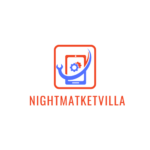Key Takeaways
- Understanding Hi-Tech Pharmaceuticals: Hi-Tech Pharmaceuticals prioritizes research and development, producing innovative medications while adhering to safety regulations and Good Manufacturing Practices (GMP).
- Counterfeit Risks: The rise of fake pharmaceuticals threatens patient safety, leading to ineffective treatments and severe health risks, especially in common categories like weight management and performance enhancers.
- Identifying Counterfeits: Key signs of counterfeit products include packaging flaws, drastic price differences, unverified claims, and unusual physical characteristics of the medication.
- Health and Economic Impacts: The use of counterfeit medications can result in serious health consequences, while the pharmaceutical market suffers estimated losses of $200 billion annually due to counterfeit activities.
- Verification Strategies: Consumers should verify product authenticity by checking for FDA seals, lot numbers, and reputable retailers, alongside advocating for purchasing from licensed pharmacies and manufacturers’ official websites.
- Industry Response: Regulatory bodies and industry initiatives are strengthening measures against counterfeiting, including unique identifiers on packaging and consumer awareness campaigns to educate the public about spotting fake products.
In an age where technology drives innovation in healthcare, the rise of hi-tech pharmaceuticals has transformed treatment options. However, this rapid advancement has also paved the way for counterfeit products that threaten patient safety and undermine trust in the industry. Fake hi-tech pharmaceuticals not only pose serious health risks but also contribute to a growing global crisis of misinformation and fraud.
As consumers increasingly rely on these advanced medications, distinguishing between genuine and counterfeit products becomes crucial. The consequences of using fake pharmaceuticals can be dire, from ineffective treatment to severe side effects. Understanding the landscape of hi-tech pharmaceuticals and the tactics employed by counterfeiters is essential for safeguarding health and well-being in today’s complex medical environment.
Hi-Tech Pharmaceuticals Fake
Hi-Tech Pharmaceuticals operates in the innovative pharmaceutical sector, focusing on developing advanced medications. It specializes in creating products that cater to diverse health needs, ensuring quality and effectiveness.
Company Overview
Hi-Tech Pharmaceuticals, established in the 1990s, emphasizes research and development to produce leading-edge therapeutic solutions. The company adheres to Good Manufacturing Practices (GMP) to ensure product safety and efficacy. It maintains transparency regarding ingredients and formulations, helping consumers make informed decisions. Numerous certifications validate its commitment to quality, reinforcing its reputation in the pharmaceutical industry.
Product Range
Hi-Tech Pharmaceuticals offers a broad array of products, including:
- Nutritional Supplements: Formulated to enhance health and wellness with specific vitamins and minerals.
- Weight Management Solutions: Designed to assist in weight loss while promoting overall health.
- Sports Nutrition Products: Tailored for athletes and fitness enthusiasts to improve performance and recovery.
- Therapeutic Medications: Focused on managing chronic conditions through innovative formulations.
Each product line prioritizes quality, utilizing scientifically backed ingredients to support health objectives. Understanding this range helps consumers identify genuine offerings while recognizing potential counterfeit alternatives.
The Issue of Fake Hi-Tech Pharmaceuticals
The rise of hi-tech pharmaceuticals has unfortunately coincided with an increase in counterfeit products that pose significant health risks. Counterfeit medications can lead to ineffective treatments and may even cause severe side effects.
Common Counterfeit Products
 Common counterfeit products in the hi-tech pharmaceutical sector include weight management supplements, performance enhancers, and certain therapeutic drugs. These counterfeit medications often mimic legitimate brands but lack the necessary ingredients or dosages. Fraudulent versions of widely-used products, particularly those from reputable companies like Hi-Tech Pharmaceuticals, frequently circulate in the market. Consumers must remain vigilant regarding the authenticity of these products to protect their health.
Common counterfeit products in the hi-tech pharmaceutical sector include weight management supplements, performance enhancers, and certain therapeutic drugs. These counterfeit medications often mimic legitimate brands but lack the necessary ingredients or dosages. Fraudulent versions of widely-used products, particularly those from reputable companies like Hi-Tech Pharmaceuticals, frequently circulate in the market. Consumers must remain vigilant regarding the authenticity of these products to protect their health.
Identifying signs of fake products helps in distinguishing counterfeit medications from genuine ones. Key indicators include:
- Packaging Flaws: Look for misspellings, poor-quality printing, or inconsistent branding compared to official products.
- Price Discrepancies: Extremely low prices compared to market averages often signal counterfeit medicines.
- Unverified Claims: Products boasting extraordinary results without scientific backing can indicate fraud.
- Discolored or Altered Tablets: Unusual colors, sizes, or shapes of pills suggest they may not be legitimate.
Awareness of these signs is crucial for making informed decisions and safeguarding health against counterfeit pharmaceuticals.
Impacts of Fake Hi-Tech Pharmaceuticals
Fake hi-tech pharmaceuticals present significant challenges that extend beyond individual patients to the broader healthcare system. Understanding these impacts, particularly regarding health and economic factors, is essential in addressing the issue effectively.
Health Risks
 Using fake hi-tech pharmaceuticals leads to severe health risks. Counterfeit medications often contain incorrect ingredients, ineffective dosages, or harmful substances. For example, counterfeit weight management supplements may include dangerous stimulants that can cause heart problems. Additionally, patients may experience a lack of expected therapeutic results from counterfeit drugs, further worsening their health conditions. The U.S. Food and Drug Administration (FDA) emphasizes that the consumption of counterfeit medications can lead to adverse events, including drug resistance and increased healthcare costs due to complications.
Using fake hi-tech pharmaceuticals leads to severe health risks. Counterfeit medications often contain incorrect ingredients, ineffective dosages, or harmful substances. For example, counterfeit weight management supplements may include dangerous stimulants that can cause heart problems. Additionally, patients may experience a lack of expected therapeutic results from counterfeit drugs, further worsening their health conditions. The U.S. Food and Drug Administration (FDA) emphasizes that the consumption of counterfeit medications can lead to adverse events, including drug resistance and increased healthcare costs due to complications.
Economic Consequences
The economic consequences of counterfeit hi-tech pharmaceuticals are far-reaching. The World Health Organization (WHO) estimates that counterfeit drugs contribute to annual losses of approximately $200 billion in the global pharmaceutical market. These losses affect legitimate companies through decreased sales and damaged reputations. Moreover, counterfeit products lead to increased healthcare expenditures as patients require additional treatments for complications arising from ineffective or harmful medications. Healthcare systems also bear the financial burden of managing the consequences associated with counterfeit drugs, further straining resources and impacting patient care. Recognizing the economic implications highlights the urgency of combatting counterfeit pharmaceuticals to preserve the integrity of the healthcare industry.
How to Avoid Fake Products
Avoiding counterfeit hi-tech pharmaceuticals requires diligence and awareness of key verification methods. Taking proactive steps ensures that consumers access genuine medications and supplements.
Verifying Authenticity
Verifying authenticity involves several critical steps. Checking for official product seals, such as those from the U.S. Food and Drug Administration (FDA), provides immediate assurance of a product’s legitimacy. Searching for the product lot number on the manufacturer’s website confirms its authenticity. Reviewing online sources for third-party testing results, which validate the quality and integrity of the medication, enhances confidence in the product. Recognizing the presence of unique QR codes or holograms on the packaging also assists in authenticity verification, as reputable companies often include these features to deter counterfeiters.
Trusted Retailers
Purchasing from trusted retailers significantly reduces the risk of acquiring fake pharmaceuticals. Opting for well-established pharmacies or licensed healthcare providers ensures access to safe, authentic products. Exploring official websites of manufacturers provides direct purchasing options and protects against counterfeit sales. Utilizing licensed online pharmacies that require prescriptions further safeguards consumer health. Investigating retailer credentials, such as accreditations from regulatory bodies, offers additional confirmation of reliability. By prioritizing authorized retailers, consumers can effectively minimize their exposure to counterfeit hi-tech pharmaceuticals.
Industry Response to Counterfeiting
The pharmaceutical industry actively confronts counterfeit challenges through various strategies and initiatives aimed at safeguarding public health.
Regulatory Actions
Regulatory bodies implement strict measures to combat counterfeit pharmaceuticals. The U.S. Food and Drug Administration (FDA) enforces regulations requiring unique identifiers on prescription drug packaging, enabling better traceability throughout the supply chain. The Drug Supply Chain Security Act (DSCSA) mandates enhanced tracking systems, allowing entities to verify product authenticity efficiently. Countries like Canada and those in the European Union also employ similar regulations to increase security and reduce counterfeit risks. Continued collaboration among international regulators strengthens the global response to counterfeiting.
Consumer Awareness Campaigns
Consumer awareness plays a pivotal role in tackling counterfeit pharmaceuticals. Industry organizations conduct educational campaigns highlighting the dangers posed by fake medications. These campaigns focus on critical indicators of counterfeit products, such as unusual packaging, missing labels, or suspicious pricing. Social media platforms serve as powerful tools for disseminating information about counterfeit identification techniques and reporting mechanisms. Partnerships with healthcare providers and pharmacists facilitate the dissemination of accurate information, empowering consumers to make informed choices and protect their health.
Products and Ensure Safety
The rise of hi-tech pharmaceuticals has brought significant advancements in healthcare but also a troubling increase in counterfeit products. These fake medications pose serious health risks and undermine trust in the pharmaceutical industry. Awareness and vigilance are essential for consumers to navigate this complex landscape effectively.
By recognizing the signs of counterfeit products and utilizing verification methods, individuals can protect themselves from potential harm. The pharmaceutical industry’s ongoing efforts to combat counterfeiting through regulatory measures and consumer education are crucial in maintaining the integrity of healthcare. Prioritizing safety and authenticity will ensure that patients receive the effective treatments they deserve.

